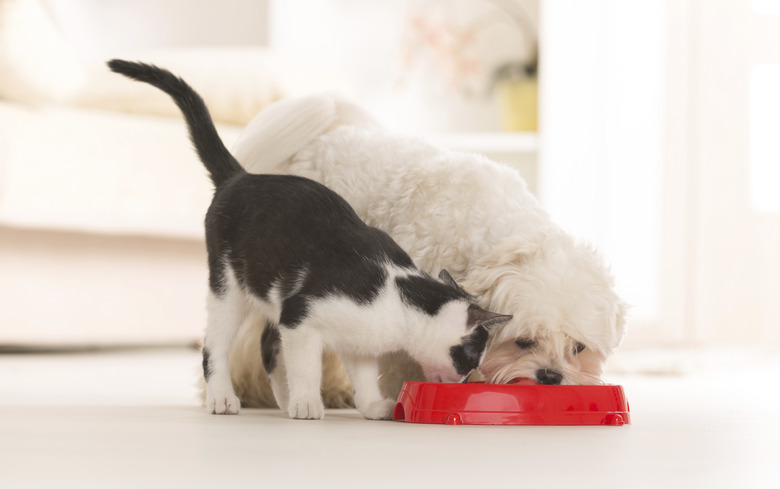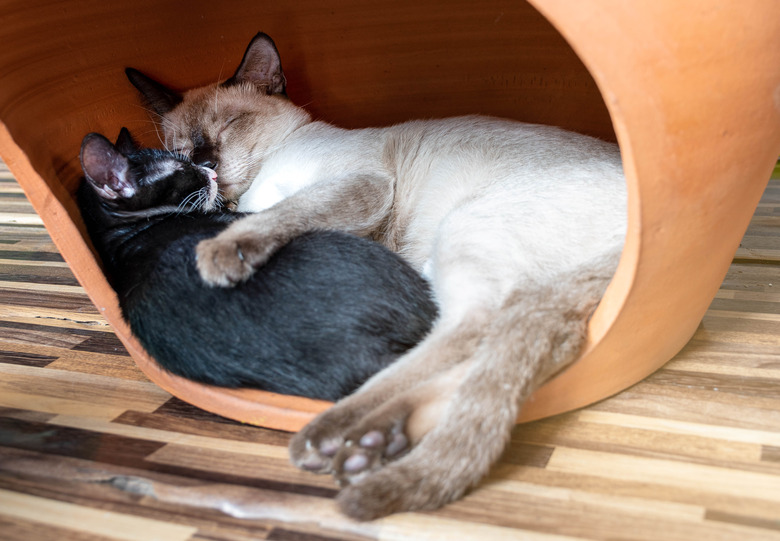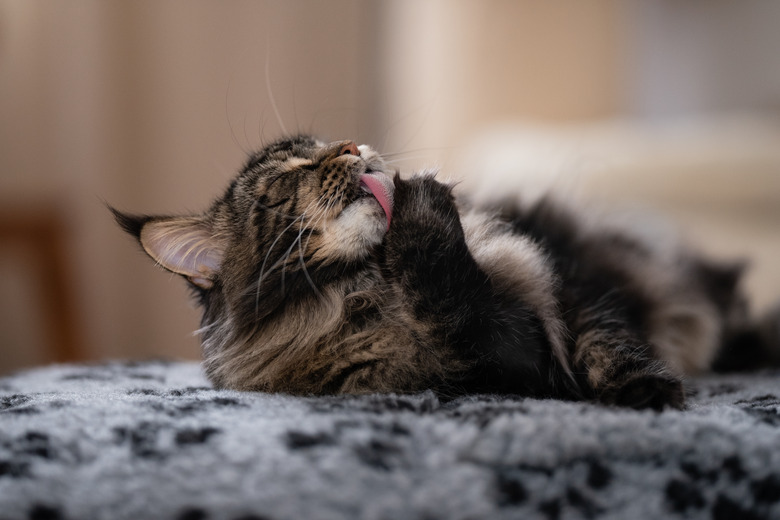Why Is My Cat Throwing Up Undigested Food?
Many cat parents have probably wondered at some point, "Why is my cat throwing up undigested food?" If your feline is bringing up more than the occasional hairball and leaving piles of partially digested or undigested food around your home, a trip to the veterinarian is in order to determine the underlying cause. Your veterinarian will develop a plan to diagnose your kitty and to treat their condition. It's possible your cat could just be regurgitating their food, a condition that's often caused by eating rapidly. Your DVM can help determine this.
Understanding vomiting vs. regurgitation in cats
Understanding vomiting vs. regurgitation in cats
Vomiting is not quite the same as regurgitation. If your cat lowers their head immediately after eating and expels food, they're likely regurgitating it. The food will appear tubular in shape, undigested, and covered in slimy mucus. Regurgitated food didn't actually make it into the stomach. It just stayed in the esophagus, which is the tube connecting your cat's mouth to their stomach.
If, on the other hand, your cat is retching and heaving before expelling the contents of their stomach, they're likely vomiting. Sometimes, you might notice drooling first. Vomited food appears somewhat digested, and it may be accompanied by a yellow fluid known as bile. This means that the food had made it into your cat's stomach rather than just into the esophagus.
Causes of cat vomiting and regurgitation
Causes of cat vomiting and regurgitation
There are numerous reasons for both of these conditions in cats. Some common causes of vomiting are:
- Hairballs
- Kidney disease
- Liver disease
- Addison's disease
- Hyperthyroidism
- Inflammatory bowel disease
- Pancreatitis
- Intestinal parasites
- Foreign object in the stomach or intestines
- Feline panleukopenia virus
- Diabetes
- Cancer
- Toxin ingestion
- Food allergy
- Stomach ulcers
- Intestinal blockages, such as with a foreign body (e.g., a toy)
- Constipation
- Anxiety
Common reasons for cat regurgitation are:
- Eating too quickly
- Esophageal stricture (an abnormal narrowing)
- Hiatal hernia
- Reflux
- Inflammation of the esophagus (esophagitis)
- Megaesophagus, which is when the esophagus is abnormally dilated. It's more likely to occur in dogs, but Siamese cats are also prone to it.
When should I be concerned that my cat is throwing up?
When should I be concerned that my cat is throwing up?
If your kitty is vomiting or regurgitating food or water more than once a week, you should be concerned and take them to your veterinarian. Weight loss is also cause for concern. If your cat has acute vomiting (repeated vomiting out of the blue), take them to your veterinarian immediately. You can bring a sample of your cat's vomit in a sealed container so your veterinarian can inspect it, or you can take photos.
Your cat may need to have bloodwork, urine tests, a fecal parasite test, and X-rays. In some cases, your veterinarian may do an ultrasound of the abdomen or use an endoscope to inspect the gastrointestinal tract. Cats with chronic vomiting may need to have biopsies of the stomach or intestines.
Treatment for cats throwing up undigested food
Treatment for cats throwing up undigested food
If your cat keeps bringing up undigested food, it's likely regurgitation and not vomiting. Treatment depends on the underlying cause. If your veterinarian has ruled out a medical condition, your cat may be eating too rapidly.
You can encourage your pet to eat slowly with:
- Small meals: If your schedule permits, try putting your cat on a feeding schedule that involves three or four small meals throughout the day.
- Slow-feeder cats bowls: These have fingerlike projections in them. This forces your cat to eat dry food slowly because they have to work to get each piece of kibble.
- Treat balls: You can place dry cat food in a treat ball, which releases the kibble slowly as your kitty plays with it.
- Lick mats: For cats who eat wet food, there are reusable mats available on which you can spread out the food.
How to prevent vomiting in cats
How to prevent vomiting in cats
Preventing puking depends on a lot of things. If your cat has a medical condition, that needs to be properly addressed. With some medical conditions, you may not be able to completely prevent all vomiting.
General ways to prevent vomiting are:
- Deworming: Deworm your cat according to your veterinarian's directions. Even indoor cats can pick up intestinal parasites, such as by eating insects.
- Hairballs: If your cat is prone to hairballs, feed them a hairball-specific diet or give them an over-the-counter hairball lubricant. These remedies help move hairballs through the digestive tract and into the stool rather than being spit up.
- Annual lab work: Annual blood and urine tests are an important part of wellness visits, particularly for cats who are 7 years of age and older. As cats age, they're more likely to develop medical conditions like kidney disease or hyperthyroidism.
- Keep toxins out of reach: Make sure household cleaners, medications, and supplements are kept out of your pet's reach. Before buying houseplants or cut flowers, look them up online to make sure they're not toxic to cats.
- Monitor your cat's toys: If your cat's toys are falling apart or you notice pieces are missing, discard them and get new ones.
- Change diets slowly: If your cat has a sensitive stomach, any changes in food should be done slowly. Over about a week, gradually mix in small amounts of new food with the old until the food is completely switched over.
- Manage your cat's anxiety: If your kitty is simply stressed out, they may vomit because they're upset. Provide your cat with plenty of toys to play with. A wall plug-in pheromone spray can also help.
The bottom line
The bottom line
Pet parents sometimes wonder, "Why do cats throw up undigested food?" If your cat is doing this, chances are they are regurgitating and not vomiting. Regurgitation is when food never reaches the stomach, and your cat just brings it right back up after eating. This can happen if a cat eats too fast. Vomiting is an active process. You'll see your cat's belly heaving, and they'll bring up partially digested food that has been in their stomach. If your cat is vomiting or regurgitating more than once a week, they need to be examined by a veterinarian.


